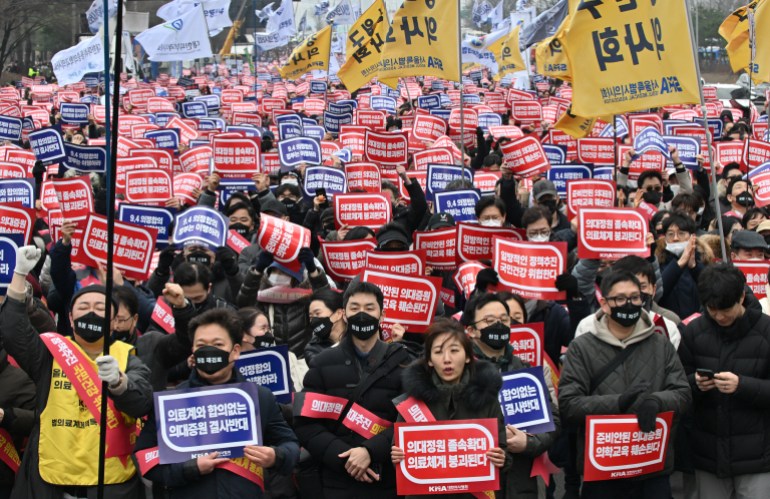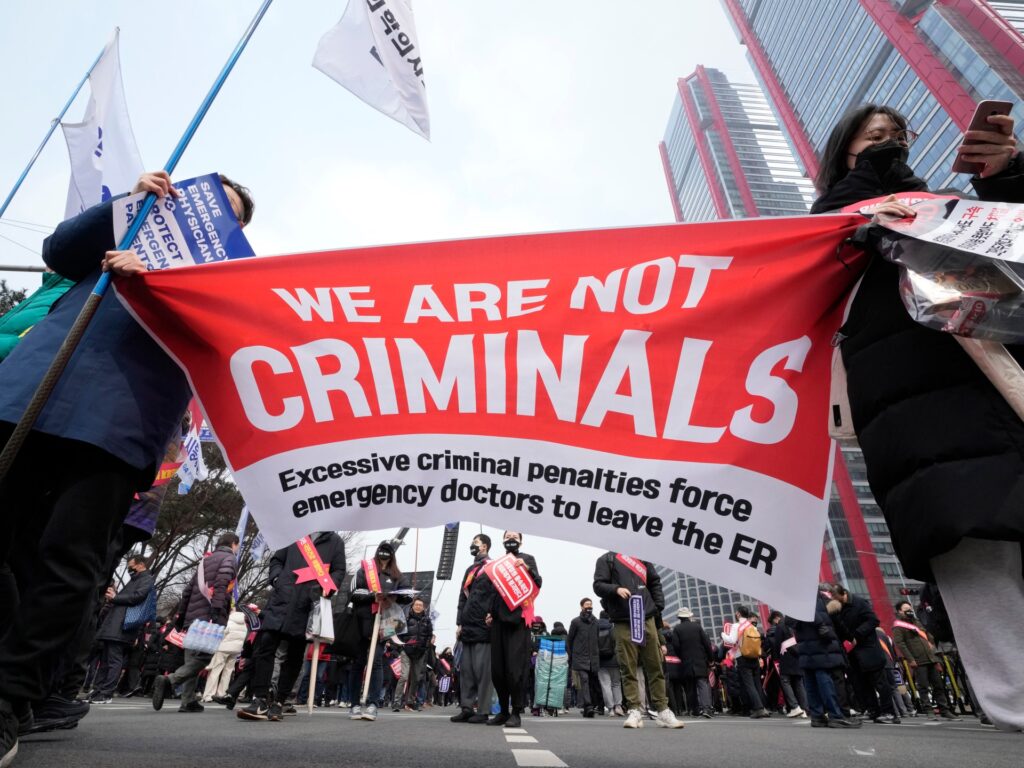Around 9,000 doctors left their jobs two weeks ago over the government's plans to increase admissions to medical schools.
South Korea has announced it will suspend the license of a medical resident who ignored an ultimatum to end a strike over a government plan to increase enrollment in medical schools.
About 9,000 junior doctors retired on February 20, some surgeries and treatments were canceled, and hospital emergency departments were hampered.
Health Minister Cho Kyohon said Monday that authorities will visit hospitals to confirm whether doctors have returned to work and “will act in accordance with the law and principles without exception.”
He told a teleconference that those who did not return “could face serious problems in their personal career paths.”
The doctors on strike are just a fraction of South Korea's 140,000 doctors. However, in some large hospitals, they make up as much as 40% of all doctors.
A massive rally organized by the Korean Medical Association (KMA), which represents medical practitioners, drew thousands to the streets of Seoul on Sunday, with doctors facing legal action, including possible arrest, if they did not return to work. It ignored the government's February 29 deadline to do so.
Doctors say the government should first address pay and working conditions before increasing the number of doctors.
Kim Taek-woo of the Korean Medical Association told the crowd wearing a black mask, “The government is unilaterally pushing for reform, and doctors cannot accept it under any circumstances.''
Korean law restricts doctors from going on strike.
“The government understands well why, despite the opposition of all doctors to increasing medical school admissions, it is exploiting policies that will forever enslave doctors.”

The government says the move to increase medical school admissions by 2,000 from the 2025 academic year is necessary, citing a rapidly aging population and fewer doctors for patients. The number of doctors in South Korea is 2.6 per 1,000 people, one of the lowest among developed countries.
A recent Gallup Korea poll found that the plan to increase admissions to medical schools is popular with the public, with about 76% of respondents in favor, regardless of party affiliation.
President Yoon Seok-yeol has taken a hard line against the strikes, and his approval rating has increased as the conflict drags on.
Analysts say the government is unlikely to compromise anytime soon, with parliamentary elections in April and Yun's party aiming to regain a parliamentary majority.
But doctors also vowed not to back down, insisting the government's plans do not address the real problems in the sector.
“We have no place to retreat anymore. We cannot sit idly by and watch the government's undemocratic actions,” Lee Jong-geun, Secretary of the Interim Democratic People's Republic of Korea, said at Sunday's protests. As mentioned in the activity.

